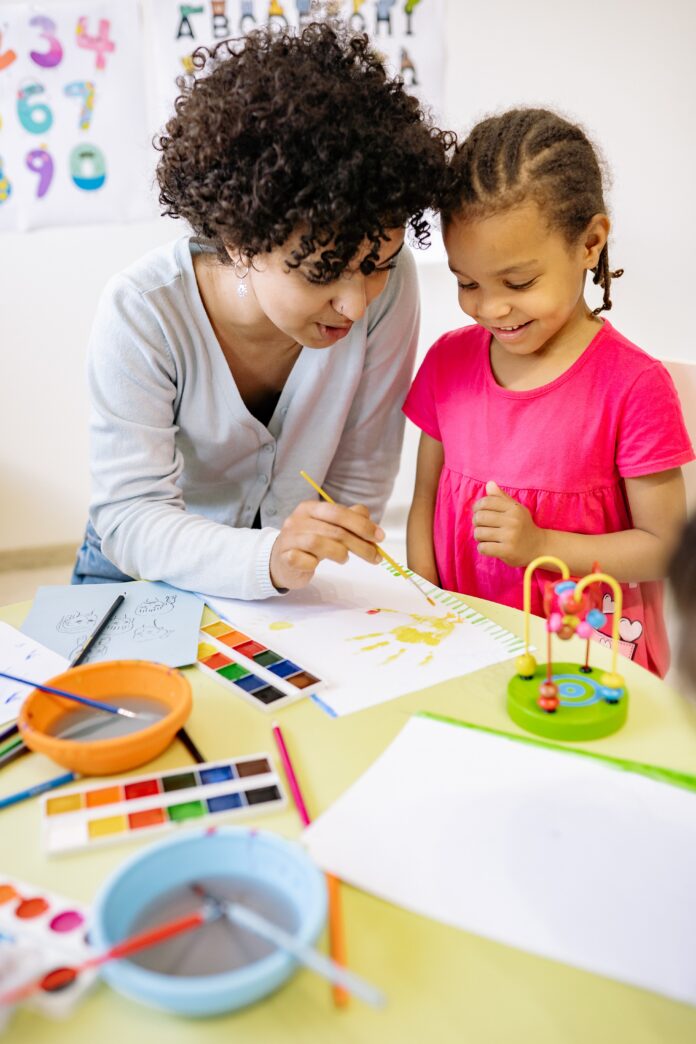
By
There’s only so much a parent will take before making a major decision to remove their child from school. A huge family relocation or simply a rough school year could result in a kid being uprooted from their campus and placed into another for the following school year. But how does a parent make the decision to remove their child from the public education system completely?
For Jennifer Duckworth and Yalonda Chandler, the two co-founders of the Black Homeschoolers of Birmingham, making that decision wasn’t easy — but it was based on common sense. They wanted the best for their children and made the decision to homeschool them based on that.
The two women entrepreneurs and leaders in their communities found each other on social media in an attempt to connect with other homeschooling families, but what they didn’t know is that their friendship would be the foundation of an entire network of homeschooled children and their parents.
“It came about when we both were two homeschool moms who were in other co-op opportunities with our homeschool children, and we both felt like, you know what? Our children are not getting exactly everything that they need in this educational journey that we’ve chosen,” Duckworth tells Word In Black.
What started in 2019 as just a group of ladies looking for ways to create the best safe space for their Black and Brown students to grow eventually transformed into a network of over 300 families planning day programs, playdates, field trips, and more for their children across the city.
Now they’re gearing up for the third annual Black Homeschoolers of Birmingham Summit. The one-day gathering is an opportunity to empower and educate families about homeschooling and learn how to position their kids for success.
“A summit like this, the goal is to bring the community together to let them all get all their questions out, give them the tools and the resources, and set them up for success,” Chandler says. She doesn’t want parents to not “have the tools, or resources, or support that they need, and then they’re at home with their children five days a week, and it’s an epic failure.”
Post-Pandemic Increase
Before the COVID-19 Pandemic, a total of 2.8% of students aged 5 to 17 were considered homeschooled children in the United States. Among them, Black students made up the lowest population of only 1.2% in comparison to their white counterparts, which made up 4% of the homeschooled population.
In March 2020, millions of students of all ages were forced to transition into remote learning, a decision that took the homeschooled population from 3% to nearly 7% across the country, according to 2022 data from National Home Education Research Institute.
“During COVID, most of our families were spread out where you’d only see a family once a month, or something like that, and you really had to search for community,” Chandler tells Word In Black. “We started this organization so it would be a built-in community.”
Research shows that among the overall increase in homeschooled children, Black families saw the largest jump from an estimated 5.4% to a fivefold jump of 16.1%. This jump rippled through the Birmingham families, fast-tracking the decision to turn the Facebook group into an official organization.
“If you want to create this community, then you have to help us,” Duckworth says. “If you want field trips, then you’ve got to create those field trips. We started becoming more of an organization during COVID.”
Music classes, debate sessions, STEM programs, soccer, art, and more were created for students to bolster the much-needed social interactions. Originally parent-led courses, experts in their respective fields have taken over the enrichment programs to give kids the full experience.
Homeschooling in the Black Community
Similar to other homeschooling families and co-ops, parents of the organization educate their children based on what they see as fit for their child. When it comes to teaching the truth about the Black experience in the U.S., their views, like many Black parents, differ from the mainstream education system,
“We would be in very good communities that would talk about history, but the history may not reflect our children,” Duckworth says.“Like we’re in the library, and whatnot, but the library would not completely reflect what our children look like.”
Chandler, a mother of four, has been a homeschooling mom since her now 22-year-old entered the sixth grade. Moving to homeschooling is a decision she’s stuck with since her child with disabilities experienced over-policing.
“We encountered a 30-year teacher at first grade within the public school setting who was determined to break his spirit,” she explains. “It was just one thing after another…I had to make the decision as the mom, we were just not going to continue.”
The need for her son to reach a level of proficiency in math to move up was also a deciding factor in removing him from a space where she felt his needs were not being addressed as a multifaceted individual.
“We definitely wanted to have a safe space where Black and Brown homeschool families can come and connect with one another, so they wouldn’t be homeschooling in isolation, but also they can learn from each other,” Chandler says.
In Duckworth’s case, she wanted her son’s learning to reflect their own lived experiences and develop a foundation for him.
“We were looking to go into the public school system at first, but then we had been instructed by some local people in our village of friends that we might want to consider not doing that because having a confident, Black son being put into the public school system at that time was not probably the best for his mental foundation,” Duckworth tells Word In Black. “This is our eighth year of homeschooling… we just take it one year at a time.”


